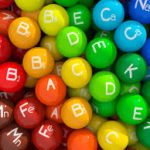
Know your vitamins
Did you know that as you age you start to lack certain vitamins ? Elderly people often find it hard to get enough vitamin D from diet and sunlight alone and many also lack vitamin B12 which aids memory.
Do you take daily supplements of vitamins and minerals because you think they help keep you fit and healthy? Join the club. I did wonder the other day though what each component was actually doing for me and decided to look into it. Here is what I have learnt.
Vitamins and minerals do different things to keep the body healthy and there is no one food that contains all of them. It is important that an elderly person has a healthy, balanced diet with a good mix of foods to ensure that you’re getting everything you need. This isn’t always achievable. Complan and Fortisip can help as can an age appropriate multi-vitamins supplement.
The table below contains information about many of the vitamins needed their function in the body, and what foods contain them.
| Vitamins and minerals | Function in your body | Food sources include… |
| Vitamin A |
|
|
| Vitamin D |
|
|
| Vitamin E |
|
|
| Vitamin K |
|
|
| Vitamin B1 (thiamin) |
|
|
| Vitamin B2 (riboflavin) |
|
|
| Vitamin B3 (niacin) |
|
|
| Vitamin B5 (pantothenic acid) |
|
|
| Vitamin B6 (pyridoxine) |
|
|
| Vitamin B12 |
|
|
| Folic acid (folate) |
|
|
| Biotin |
|
|
| Vitamin C (ascorbic acid) |
|
|
| Sodium chloride (salt) |
|
|
| Potassium |
|
|
| Calcium |
|
|
| Magnesium |
|
|
| Iron |
|
|
| Zinc |
|
|
| Copper |
|
|
| Manganese |
|
|
| Molybdenum |
|
|
| Selenium |
|
|
| Chromium |
|
|
| Iodine |
|
|
| Phosphorus |
|
|

